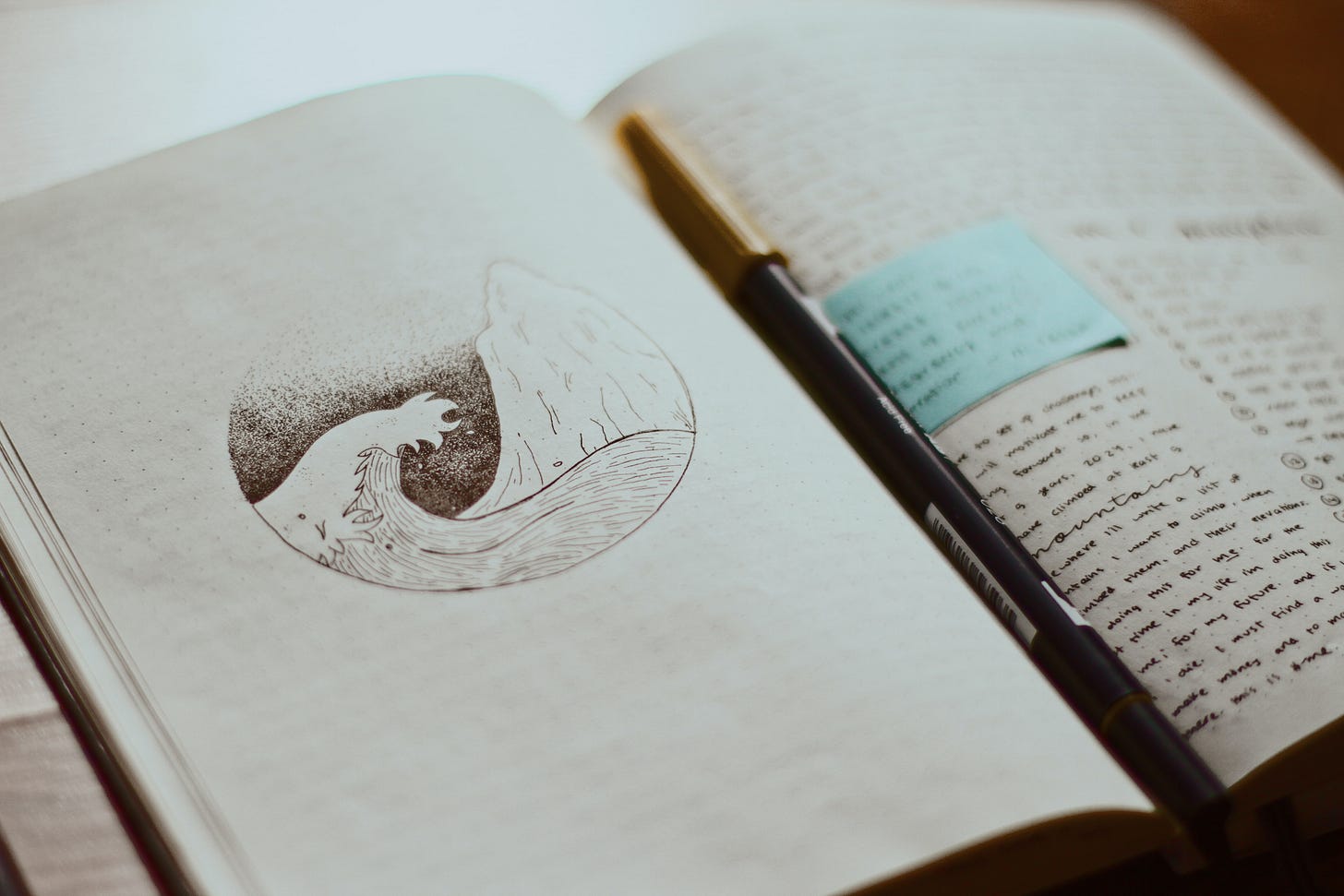Common Place
Learned Volume 3, Issue 34
Welcome to Learned, a short, weekly look at language, education, and everything else under the sun. I’m Joel, linguist and professional slacker. This week, we're recording everything.
subscribe | unsubscribe | comments | twitter | about
One of the odd joys of being a writer is that people give you notebooks. They give them to you on birthdays and Christmas and Tuesdays after the big Autumn sale, and it is lovely and kind and just a nice thing, all around. And then all these received blank books and notebooks and diaries and journals gather into little piles of potential on a shelf in your closet where they sit in silent judgement daring you to fill them with something less than the most elegant turns of phrase. I think I'm up to about thirty. More importantly, I've got a new idea to try - the commonplace book.

The commonplace book is an old, old tradition. They share an ancestry with almanacs, recipe books, and dictionaries in that they are born out of people's observations. From Wikipedia:
Commonplace books (or commonplaces) are a way to compile knowledge, usually by writing information into books...Commonplaces are used by readers, writers, students, and scholars as an aid for remembering useful concepts or facts. Each one is unique to its creator's particular interests but they almost always include passages found in other texts, sometimes accompanied by the compiler's responses.
What is most telling, to me, and what separates the Commonplace book from any other form of diary or journal is that they are largely external from the writer. If a diary records a persons thoughts, feelings, and experiences, the commonplace book records the observations and information that prompted said thoughts, etc. The same wiki page linked above gives examples of the information recorded as "recipes, quotes, letters, poems, tables of weights and measures, proverbs, prayers, legal formulas."
To me, this is the point. I write a lot. For years, I wrote primarily by hand. Over the years, however, what I write by hand has lessened in favor of the keyboard just because it is so much faster. However, we've known for centuries that we remember more when we write things down and, over the past two decades, evidence has been mounting that we remember much better when we write by hand.
I've been experimenting with ways to remember more and to remember better over this past year. One of the more successful experiments has been to make more use of Amazon's Kindle for iPad's ability to record highlights and notes. I've been forcing myself to read more slowly, to highlight and to annotate, and then to export the works to a separate file which is then added to one of my information archives for easy retrieval. This way I am not struggling to come up with a name or date, all I need to do is look at my notes for a given book. As I said, it's been working well...for non-fiction.

For fiction, I don't really need nor want to highlight half the book. It just adds a layer of work to what should be relaxing escapism. So we come back to the commonplace book. There are any number of turns of phrase, fragments of poetry, interesting word choices, metaphors, pithy ideas, revolutionary thinking, clever comebacks, and - importantly - really creative ways of swearing, that I want to capture better. Thus far, I have been in the habit of scribbling things on little scraps of paper, transferring these to a digital journal or archive, and promptly forgetting about them.
My idea, my experiment for next year, will be to spend a year with a dedicated notebook focussing on recording the ephemera that prompts thinking, feeling, or doing on my part. Even if it just leads to a line-item on tomorrow's to-do list, I want to record the external origin or prompt that pointed the way. And so, while I don't expect to record everything, I want to see what I can capture. Truthfully, and somewhat perversely, I expect 90% of what I do record to turn out to mean nothing to me twelve months later, but, again, I just want to see what I can capture.
So, will the book be quotes from witty rogues on Twitter or scandalous jokes from friends or just a pithy quote from the label on a new kind of beer? Probably. Maybe. I hope so? At the very least, it'll fill up one of those judgmental little piles of potential, and that's the real point.
New issue of The Glossary on Friday.
Until then, stay safe, stay sane, learn something.
subscribe | unsubscribe | comments | twitter | about
Joel
P.S. Here are some interesting articles I found while thinking about common place books. Enjoy.


